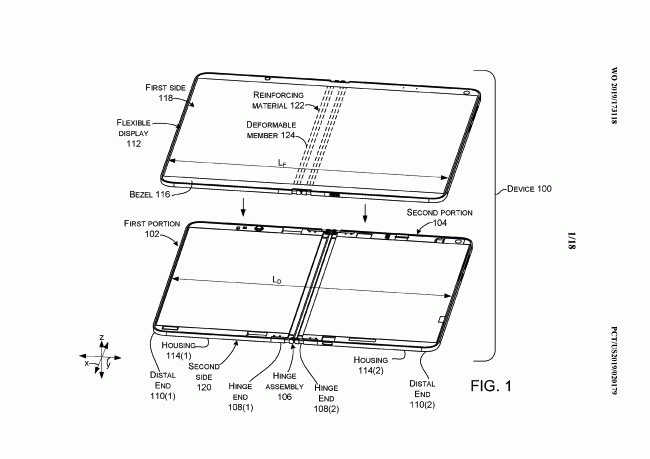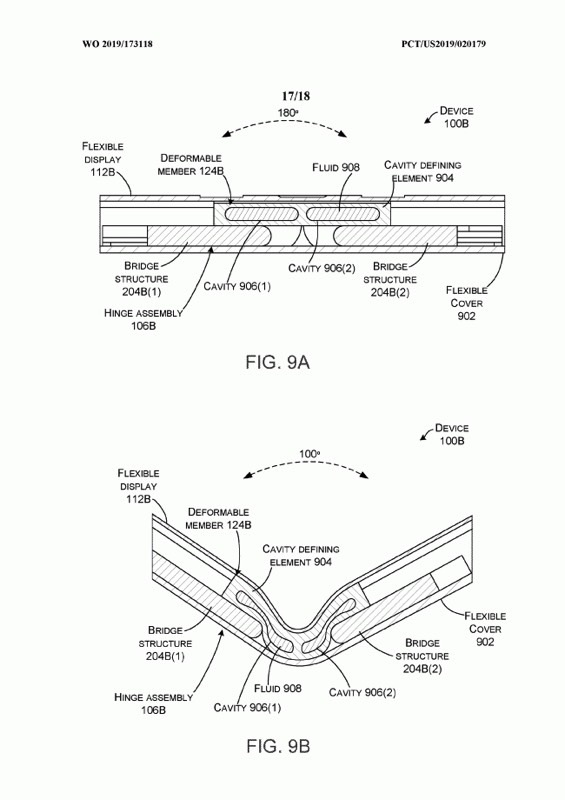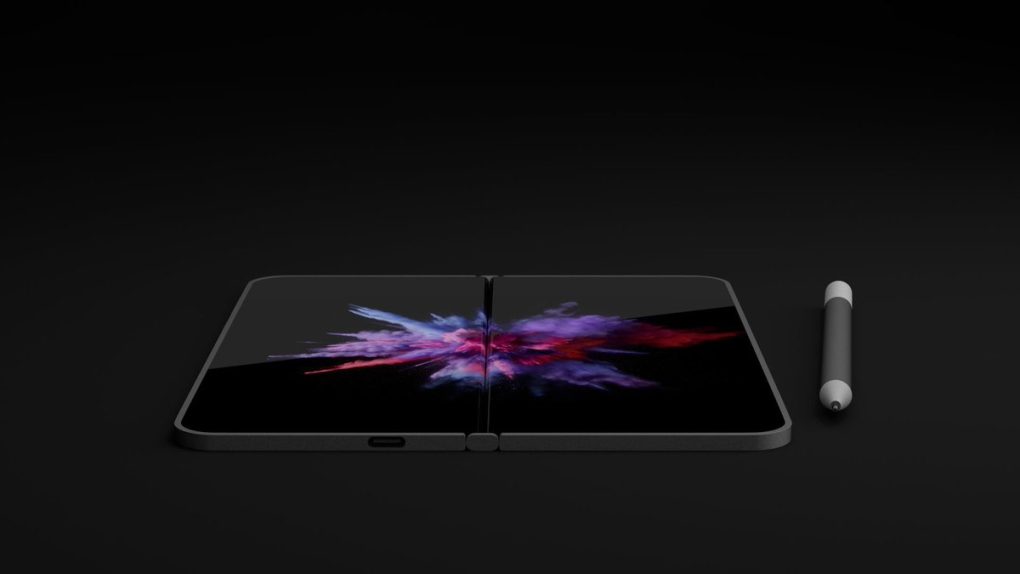Microsoft is widely expected to unveil a few brand-new Surface models in early October in addition to the successors to the Surface Pro and Laptop lines. The company will introduce its first Surface devices packing AMD and ARM processors, as well as the Lite version of Windows 10 that should work on ARM-powered laptops.
And while Microsoft might not launch its dual-screen Surface gadget until next year, the company could unveil it at the upcoming show. Even if Microsoft doesn’t announce the so-called Centaurus device in the coming weeks, we’ve heard plenty of stories that suggest such a device is in the making. And a new finding indicates that Microsoft has designed a foldable device component that may come in handy to smartphone vendors exploring foldable devices.
Microsoft made a big deal about the Dynamic Fulcrum hinge of the Surface Book when it first introduced the convertible tablet/laptop device a few years ago, and then it did the same thing with the Zero-Gravity hinge when it launched the Surface Studio desktop later on. In other words, the company is passionate about figuring out ways to make things bend.

With that in mind, we’re not surprised to hear that Microsoft patented a brand new type of hinge, one that could accommodate the needs of those companies working on foldable devices of any kind — Microsoft included. As discovered by German-language site WindowsUnited, the patent describes a hinge mechanism for foldable devices incorporating a liquid-powered hinge. The hinge would be filled with a semi-viscous fluid, The Verge notes, which could reduce the stress on flexible and foldable displays.
The illustrations Microsoft uses show various concepts of the hinge assembly, describing structures to “prevent foreign materials from entering the hinge assembly/device.” If that sounds familiar, that’s because the Galaxy Fold suffered from the same problem. Debris found its way into the machine and destroyed the screen, early reviewers found, with the hinge mechanism being to blame. Samsung later fixed the hinge to prevent similar issues.

What’s interesting about the patent is that it was filed by “Microsoft technology licensing,” which seems to be an indication that Microsoft might license the tech to other device makers. And it so happens that plenty of companies that manufacture Windows devices also make smartphones from Samsung and Lenovo to LG and Huawei. Some of these companies are already working on foldable devices of their own, with Samsung and Huawei having already announced theirs. Meanwhile, Lenovo demoed a foldable Windows laptop not too long ago, well before anyone else in the business.
While technology described in patents doesn’t always end up in consumer electronics, previous Microsoft patents did detail innovations that went into the Surface line.
Microsoft’s fall Surface event is scheduled for October 2nd, at which point we’ll see whether the Centaurus dual-screen device will get an early introduction, a la Samsung’s Galaxy Fold last fall, or not.








